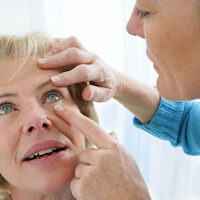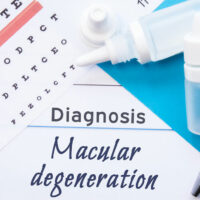8 Foods to Avoid for Multiple Sclerosis

Multiple sclerosis (MS) is a condition wherein one’s immune system attacks the central nervous system. It is an inflammatory and autoimmune condition affecting speech, vision, and mobility. Persistent fatigue, tremors, vision issues, osteoporosis, and bladder problems are common symptoms of multiple sclerosis. The food one consumes plays a significant role in managing the symptoms of multiple sclerosis. Certain foods help improve symptoms and protect patients from frequent infections. This article discusses foods to avoid for multiple sclerosis.
Impact of multiple sclerosis on the body
MS occurs when the immune system harms the myelin, which is the protective coating of neurons in the brain and central nervous system. MS can result from demyelination, inflammation, loss of neurons, or gliosis. Lesions form in various regions of the central nervous system, causing symptoms to manifest based on the affected nerves. Environmental factors, infections, genetic factors, and a defective immune system can cause MS. The typical symptoms of MS include:
Progressing weakness in one or several limbs
Stiffness
Weakness
Imbalance
Double vision
Atrophy in the optic nerve
Fatigue
Chronic headache
Short-term memory loss
Lack of concentration
Problems in chewing and swallowing
Constipation
Diarrhea
Bladder problems
Impotence
Lack of interest in sexual activity
The intensity of symptoms differs from one person to another. While some may experience these symptoms and go through a phase of no symptoms for many months or years, some may experience symptoms many times a year. Oral prescription treatment, physical therapy, exercise, and healthy meal plans are common management techniques for MS.
Foods to avoid for multiple sclerosis
Consuming foods that strengthen the immune system and prevent inflammation can benefit those with MS. Conversely, foods that exacerbate symptoms, promote inflammation, and weaken immunity should be avoided. MS is an autoimmune condition, so it’s important to be mindful of what one eats. Some of the foods that one should avoid are:
Saturated fats
Saturated fats remain solid at room temperature and can form a deposit in the blood vessels when consumed in large quantities. The main source of saturated fats is animal products and animal by-products, red meat, and dairy. Saturated fats increase the level of LDL cholesterol and trigger inflammation. Since people with MS are at higher risk of cardiovascular disease, high cholesterol levels put them at risk for hypertension, atherosclerosis, and stroke.
Trans fats
Liquid oils converted into solid fats are called trans fats and are one of the worst fats for one’s health. It is naturally available in dairy and red meat and may not cause much harm. Artificially produced trans fat commonly used in packaged and fried food cause the most harm as it increases the risk of heart disease, diabetes, and stroke. People with MS should avoid foods like:
Packed cookies and snacks
Bread and crackers
Frozen foods
Fast food
Read the ingredients list and do not buy products that contain shortening or ‘hydrogenated fat’ – a name that denotes trans fats.
Sugar
Sugar causes inflammation, which can impact an MS patient with mobility issues. Too much sugar can also lead to fatigue. A sugar craving and indulgence can cause mood changes and depression, which is common in people with MS. Though there is no need to avoid sugar completely, it is important to monitor the amount of sugar one eats and change to healthier options like fruits to curb sugar cravings.
Salt
Though salt does not cause MS or worsen existing symptoms, it can contribute to hypertension and high blood pressure. Therefore, it is important to limit salt consumption to less than 2,300 milligrams if one does not have any pre-existing cardiovascular conditions. If one has a history of hypertension, one must restrict the amount of salt to 1500 milligrams daily.
Refined carbs
Refined carbs and refined grains can cause a spike in sugar levels and damage the myelin sheath, weakening signals and leading to neural dysfunction. Avoid food like pasta, bread, and other cookies and snacks that are made with refined flour. Switch to alternatives like whole grain pasta, bread, and snacks rich in vitamins, fiber, and antioxidants. If intolerant to gluten, one must avoid grains like wheat, barley, and rye.
Processed foods
Processed foods and meats contain high preservatives like nitrates and other synthetic additives. These additives interfere with the immune system and could damage gut bacteria and intestinal muscles. Since MS is an autoimmune disease, any disruption to the immune system can worsen the symptoms of MS. It is best to switch to a meal plan with high amounts of fresh food.
Caffeine
Overactive bladder is a common impact of MS, where one may not be able to empty the bladder fully. A person may have to urinate frequently, which can worsen at night. Since caffeine is a diuretic, it can further worsen the symptoms, making it impossible to have a good night’s sleep. Therefore, a person with MS should avoid coffee, green tea, chocolate, and other beverages like sodas with added caffeine.
Dairy
Butyrophilin and bovine serum albumin – two proteins found in cow’s milk can confuse the immune system and cause it to attack the myelin sheath, leading to demyelination. Avoiding dairy products like milk, yogurt, cheese, and ice cream can be beneficial and prevent further damage to the myelin. One can choose plant-based milk alternatives like cashew milk, soy milk, rice, or oats milk. However, one must avoid plant-based milk that may contain oils, such as coconut milk.
Common tips for managing multiple sclerosis
A combination of structured treatment, meal plans, lifestyle changes, and exercises can help maintain a healthy body and prevent osteoporosis. A balanced meal plan rich in protein, calcium, and vitamins is best for people with MS. Here are a few tips to follow while preparing meals:
Replace saturated fats with plant-based oils and unsaturated fats
Eat foods rich in Vitamin B, and E
Eat five portions of vegetables and fruits
Avoid eating fried food that is roasted, boiled, or steamed
Avoid red meat and choose lean meats rich in vitamins, iron, and zinc
Replace white bread with whole-grain bread
Drink adequate quantities of water to prevent dehydration and cleanse the toxins in the body.





